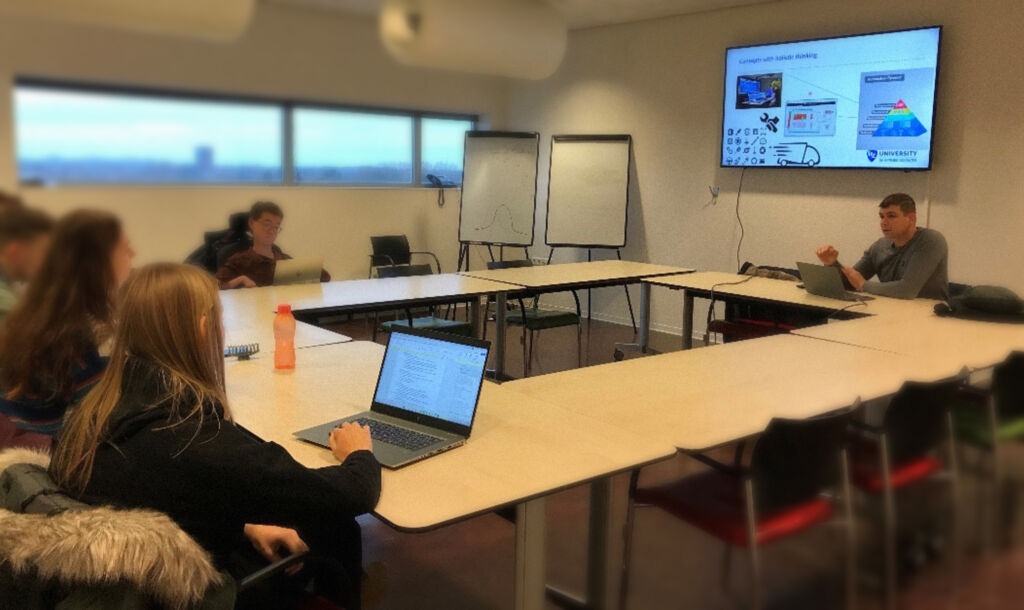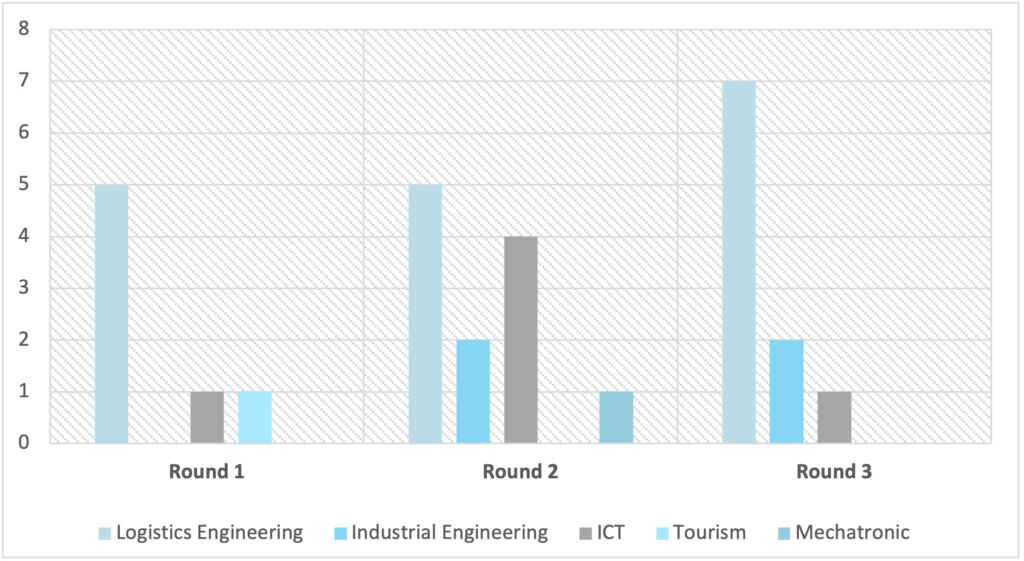Part of the Dissemination activities conducted over 5G-Blueprint’s run includes a minor course on Automated Vehicles in Logistics led by partner HZ University of Applied Sciences, aimed at presenting an educational program for bachelor students, in which they had the opportunity to explore, understand and apply the technical aspects and characteristics of autonomous systems, and explore potential applications and their impact on mobility and society in general.
Course objectives and characteristics

The objective of the minor course was to teach students:
- What are the characteristics of teleoperated and autonomous transport systems
- What are the most important technical, organizational, economic, and social issues in the introduction and application of autonomous systems
- Which stakeholders play a role in the development and application of autonomous vehicles
- What the impact of autonomous systems can be on transport systems and society
The minor course was set up within the format of “Becoming Fit to the Future” which is used within HZ University of Applied Sciences to allow students to participate in state-of-the-art research projects. The format consisted of a minor course for bachelor students that embraces a full-time educational program for a period of 20 weeks. The study load was 30 ECTS. The learning objectives for research skills and professional skills in Becoming Fit to the Future were:
- Improve the challenge based on a professional and proactive attitude
- View and understand the challenge from different perspectives
- Design, execute, monitor, interpret, and/or validate the professional product systematically
- Propose a desirable follow-up and critically evaluate the professional product (result) and the associated development process
- Share and record the results in a structured manner and, based on own results, potentially contributing to enriching existing knowledge
- Project-related goal (specified by or with help of the work field)
The minor course was successfully organized in three rounds:
- Sept 2021 – Feb 2022
- Feb 2022 – Jun 2022
- Sept 2022 – Feb 2023
In order to offer a broad orientation on the technology, development, and applications of autonomous vehicles in logistics and passenger transport, knowledge was provided in the form of lessons, workshops, and guest speakers. The lecture program was divided into four themes:
- Technology (situational awareness, collision avoidance, route planning, connectivity, HMI)
- Innovation eco-system (business cases, business models, regulations)
- Applications (logistics – road transport, passenger transport, and smart shipping)
- Societal Impacts (safety, health, infrastructure)
Students worked in small groups on a research project for a client related to teleoperated and autonomous transport and were supported with lessons on the topic, research skills, and coaching. At the end of the semester, students were assessed on their personal development of professional and research skills and the project result achieved.
Quotes from the Students
“My experience of the minor was very positive. I was looking for a course that would fit in well with my current study in logistic engineering and I succeeded very well. I was amazed at the processes involved in designing an autonomous vehicle. I really recommend it, a very instructive minor.” – Robin Mailinger
“Overall a pretty good minor. The weekly meetings about the project progress, as well as the course content, formed a nice schedule for me. The meeting with the external people was a nice addition, to make sure you know the problems, and the direction you’re going towards, very clearly.” – Eijk Bradley
“My general impression of the course is: the minor was very instructive; enough support was provided by the coaches within it and there was a lot of room for feedback.” – Jorian Aarnoudse
“The minor was valuable in terms of acquiring knowledge and developing some new skills through the lectures and field trips we went on.” – Omar Rashidov
Statistics on Participants
The number of students involved in the minor per each round is as follows:
- Sept 2021 – Feb 2022: 7 students
- Feb 2022 – Jun 2022: 12 students
- Sept 2022 – Feb 2023: 10 students
The following figure illustrates the programs from which the students were coming:

As previously mentioned, the students worked on specific projects during the minor course. The number of projects and the topics investigated per each round are listed here below:
- Sept 2021 – Feb 2022
2 projects; Project topics: “Design of an autonomous vehicle for power distribution on a farm”, “Design of a logistics concept with autonomous barges in the ports of Zeeland”
- Feb 2022 – Jun 2022
3 projects; Project topics: “Autonomous barging in container transport”, “Comprehensive design of a safety case for autonomous transport on public roads”, “Developing a Robot Operating System for an autonomous vessel”
- Sept 2022 – Feb 2023
3 projects; Project topics: “Battery charging in zero-emission tractor-trailer logistics”, “Public transportation system with autonomous ferries”, “Risk analysis of using autonomous terminal tractors”
Material presented
The sets of slides presented over the course are available here below for download:
- Module 1.1: Features of the AGV
- Module 1.2: State-of-Art of AGVs
- Module 1.3: Advantages and Disadvantages with AGVs
- Module 1.4: Use Case Description
HZ is gearing up for a follow-up course in autumn – Stay tuned to our website and social media channels for updates!

